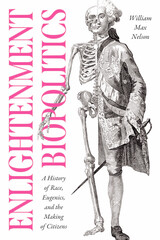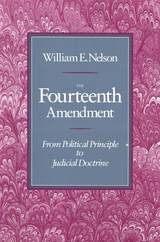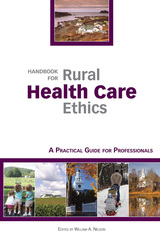

In Enlightenment Biopolitics, historian William Max Nelson pursues the ambitious task of tracing the context in which biopolitical thought emerged and circulated. He locates that context in the Enlightenment when emancipatory ideals sat alongside the horrors of colonialism, slavery, and race-based discrimination. In fact, these did not just coexist, Nelson argues; they were actually mutually constitutive of Enlightenment ideals.
In this book, Nelson focuses on Enlightenment-era visions of eugenics (including proposals to establish programs of selective breeding), forms of penal slavery, and spurious biological arguments about the supposed inferiority of particular groups. The Enlightenment, he shows, was rife with efforts to shape, harness, and “organize” the minds and especially the bodies of subjects and citizens. In his reading of the birth of biopolitics and its transformations, Nelson examines the shocking conceptual and practical connections between inclusion and exclusion, equality and inequality, rights and race, and the supposed “improvement of the human species” and practices of dehumanization.



William Nelson reinterprets nineteenth-century American history as a struggle between majority rule and minority rights. From this fresh point of view, he traces the roots of American bureaucracy.
Nelson analyzes the majority–minority tension form the Jacksonian revolution of strong party rule and majoritarian decisionmaking through the abolitionist crisis, the Civil War, Reconstruction, and the rise of industrialism. He shows that ultimately political and legal pluralism emerged to protect minority and individual rights. The instrument of a professional bureaucracy with neutral political standards was fashioned. Personalities as seemingly disparate as Henry Adams, John W. Burgess, Charles W. Eliot, Christopher Columbus Langdell, and Theodore Roosevelt all contributed in an effort to stop the centralizing impact of democracy.
Nelson’s new way of thinking about the period puts into different perspective the actions of the three branches of federal government, its courts and administrative agencies, and even the states. All shifted toward bureaucratic or neutral standards, reliance on experts, and professionalization. Legal thought changed from an instrumental to a formal reasoning style, civil service tamped down partisan politics, and in Congress, seniority and the committee system check democratic tendencies.

Over the course of his career at Harvard, Morton Horwitz changed the questions legal historians ask. The Transformation of American Law, 1780–1860 (1977) disclosed the many ways that judge-made law favored commercial and property interests and remade law to promote economic growth. The Transformation of American Law, 1870–1960 (1992) continued that project, with a focus on ideas that reshaped law as we struggled for objective and neutral legal responses to our country’s crises. In more recent years he has written extensively on the legal realists and the Warren Court.
Following an earlier festschrift volume by his former students, this volume includes essays by Horwitz’s colleagues at Harvard and those from across the academy, as well as his students. These essays assess specific themes in Horwitz’s work, from the antebellum era to the Warren Court, from jurisprudence to the influence of economics on judicial doctrine. The essays are, like Horwitz, provocative and original as they continue his transformation of American legal history.
READERS
Browse our collection.
PUBLISHERS
See BiblioVault's publisher services.
STUDENT SERVICES
Files for college accessibility offices.
UChicago Accessibility Resources
home | accessibility | search | about | contact us
BiblioVault ® 2001 - 2024
The University of Chicago Press









